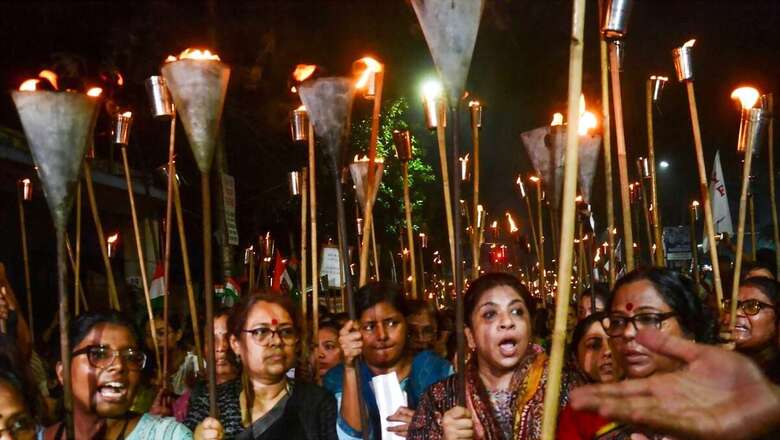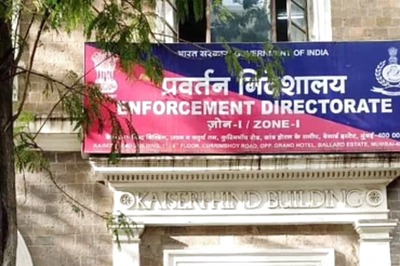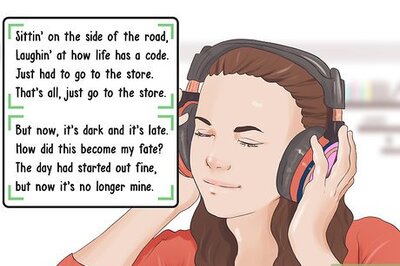
views
A young doctor was brutally raped and murdered in a government hospital in Kolkata by a civic police volunteer — allegedly a political appointee — in a chilling escalation of the abuse of power. Unlike the Sandeshkhali incident, where abstract statements of sexual assault and violence ruled the narrative, here lies the stark reality: a victim, a body, and a crime committed within the supposed safety of a hospital.
The RG Kar case highlights the unchecked, sometimes unauthorised, and dangerous influence of civic volunteers and the system in the state’s hospitals. What can be worse than the betrayal of public trust by those appointed to uphold it?
There has not been a word from the government to investigate the lapses in the civic volunteer force yet. Meanwhile, the government posted the principal of the college to a higher-ranked government hospital after he resigned from his post in RG Kar.
The midnight scenes on Kolkata’s streets, suburban towns, and villages across districts on the eve of Independence Day reflect a deep impact on Mamata Banerjee’s women voters. These women, who once rallied behind their “Didi” during elections, are now leading long marches demanding justice for the young doctor.
The movement has gained unified traction through several forms of social media campaigns across the state and beyond, signaling a powerful shift. Unlike the Sandeshkhali agitation, which eventually lost momentum and fizzled out in political transitions, this uprising is different — driven by the very electorate that once empowered the state’s leadership.
Meanwhile, chief minister Mamata Banerjee, and some of her party colleagues’ statements through public addresses and social-media posts calling this movement a ‘politically motivated and coloured’ one, have made the situation even more complex. The ruling party in the state has already seen many of its senior leaders distancing themselves from the party’s stand on the issue, while joining the protest.
Not a distant tragedy in Sandeshkhali
The rape and murder of a young doctor at one of the most prestigious government hospitals in Kolkata is not a distant tragedy like Sandeshkhali; it’s a stark and brutal reality in the state’s capital. A victim, a body, a government institution-turned-crime scene, and a perpetrator emboldened by alleged political connections — There are multiple contrasts between the incident at RG Kar Medical College and the alleged cases in Sandeshkhali. Unlike the instances of sexual assault in rural Bengal, the RG Kar case strikes at the core of urban safety and trust in state institutions.
Here, the victim is not just another statistic from a distant village. According to her peers, she was an aspiring, hardworking and bright doctor — a professional dedicated to saving lives — who was raped and murdered within the supposed sanctity of a government hospital. The fact that this crime was perpetrated by a civic police volunteer, a figure meant to represent law and order, makes it all the more shocking.
The trauma that the victim’s family members were made to go through, and the decision to rehabilitate Sandip Ghosh, the ex-principal of RG Kar, fuelled the fire further.
In Sandeshkhali, the violence, though detestable, is often seen as a product of the region’s socio-political complexities. But in Kolkata, a city that prides itself on being a hub of culture and intellect, this incident shatters the illusion of safety and civil governance. It is not just an isolated crime — it’s a statement on the dangerous precedent set by empowering individuals with parallel authority without accountability.
The case exposes the fatal flaws in a system that allows political considerations to override the fundamental duty of protecting citizens. This isn’t just another case of violence — it’s a betrayal of the very trust that citizens place in public institutions.




















Comments
0 comment